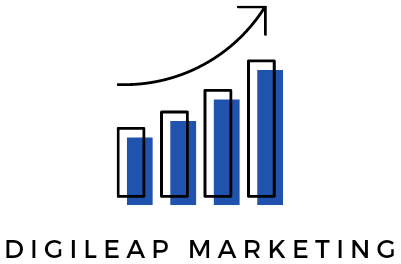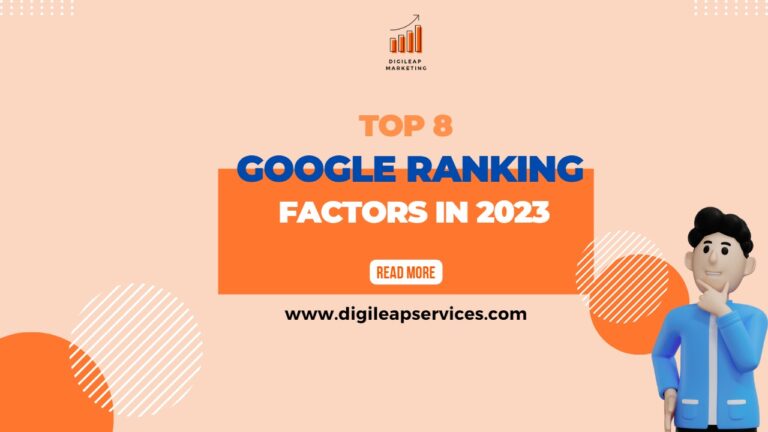Google Algorithm for SEO
The Google search algorithm is a sophisticated system that allows Google to identify, rank, and deliver the most relevant pages for a given search query. To be more specific, the entire ranking system is comprised of many algorithms that consider various aspects such as page quality, relevancy, and usability. There are numerous forces at work. Also, one of the things that you can do is be active on all social media platforms like Facebook, Instagram, YouTube, and LinkedIn. You should make sure that you have active followers and that should constantly keep your focus on increasing the followers as you grow. Most importantly if you are from a professional background then you should concentrate more on increasing your followers on LinkedIn, if you are from a creative background you should concentrate on increasing your followers on Instagram, and if you have more informative and video-based content then you should go for YouTube.
We’ll go over the five primary areas that determine what results are delivered for a given query:
1. The query’s meaning: – To produce relevant results, Google must first comprehend what the user is looking for and what his search intent is.
They must comprehend and evaluate a variety of concepts:
- The meaning of the words – what do the words used in natural language mean?
- The query’s search goal – what does the user desire by using the query – definition, review, purchase, locating a specific website?
- The requirement for content freshness – is the query time-sensitive and requires new information?
2. The importance of pages: – Second, the search engine must determine which pages are pertinent to the search query. To put it another way, locate the pages that best answer the user’s search query. It gains this by moving and indexing all webpages on the internet on a regular basis and going through their content. Keywords have a critical role. If the search query and phrases linked to the search query exist on the page, the website is likely to be relevant to the user.
3. Content quality: – Because there are possibly millions of pages for each search query, Google must favor those that provide high-quality material and demonstrate:
- Expertise
- Authoritativeness
- Trustworthiness
- One of the key elements is the so-called PageRank algorithm that considers the quality and quantity of links pointing to a page.
Common content mistakes to avoid while creating content!
4. Page usability:-Now that Google has addressed the relevancy and quality of information, they must ensure the website’s usability and user-friendliness.
This covers technical considerations such as:
- Responsiveness of the page
- In all browsers, the page view is appropriate.
- Page loading time
- Website security These may not be the most significant variables, but they are surely considered when other aspects (such as relevance and quality) are equal.
5. Setting and context: – Finally, the search results are greatly influenced by the user’s own circumstances and preferences.
These may include the following:
- The user’s location
- Searches in the past
- Options for searching
In general, Google algorithm updates fall into two categories:
- Minor changes
- Updates to the core
And by pretty frequently, we mean multiple times per day. Most of these changes are minor, and most people are unaware of them. Aside from these minor changes, Google releases a few major core algorithm modifications each year. These frequently generate a lot of interest in the SEO community and are given catchy names.
Let’s have a look at some of the most important Google search algorithms to stay informed and up-to-date as a webmaster or business owner in order to profit in the long run.
- Google Panda: – The Panda algorithm (named after one of its engineers) first appeared in early 2011. The major goal of developing the search algorithm was to reduce the number of low-quality sites appearing at or near the top of Google’s results. This algorithm was Google’s first big move toward more accurately dispensing important and informed material to users while screening out low-quality data. The Panda examines a website’s content, determines its quality, and positions it in accordance with quality standards.
Content that sets off the Panda:
- Content of poor quality
- Data duplication
- Unuseful and deceptive information thin content
- Spinning Articles
2. Google Penguin: – The Penguin was published in 2012. Though it shares a common foundation with Panda in terms of producing better and more active results, it concentrates on the backlink profiles of sites that affect its ranking. Dubious links from shady sources have a detrimental impact on your website’s results, and Penguin makes certain that such instances never occur.
The Emperor Penguin:
- Is entirely automated
- Natural and trustworthy links grip your website
- This is a useful link for counting votes for your website.
Elements that cause Google’s Penguin to act:
- Unethical behavior (purchasing links)
- Links of poor quality
- Keyword-stuffing Links from spammy websites
3. Google Hummingbird: – Hummingbird emerged in 2013, with a different goal than Panda and Penguin, by rewriting Google’s indexing processes and algorithms. The algorithm’s name derives from its capacity to be exact and fast, with the goal of focusing on the meaning of the word or phrase to deliver better search results.
Hummingbird assists Google with:
- Effective search query interpretation
- Provide relevant results that correspond to the searcher’s intent
- Make a page rank higher for an asked inquiry, even if it doesn’t contain the precise terms provided by the user.
Points triggering Hummingbird:
- Keyword Stuffing with Exact-Match
While Panda, Penguin, and Hummingbird defied industry expectations, Google continues to improve its algorithm with newer upgrades like as RankBrain, Fred, Possum, and Page Rank. The tech titan continues to upgrade and refresh its long-running algorithms at regular intervals, providing end-users with a smooth experience on their various searches and research. Upgrading and boosting your search engine’s exposure necessitates the use of an ethical strategy for SEO as well as paying attention to Google’s notifications and alerts.
Many developments and updates have clearly changed the conventions and strategies of a corporation as Google’s years have progressed. As a result, it has become necessary for search specialists to stay current on any latest Google SEO changes and announcements.
For the most recent SEO updates, consult the following sources:
- Google Publications
- SERP Tracking
- Sources of SEO News
Google is the pioneer of search marketing, and its algorithm, which is updated on a regular basis, plays an important part in developing SEO campaigns to improve the optimization and ranking of your website.
For more such blogs visit www.digileapservices.com












